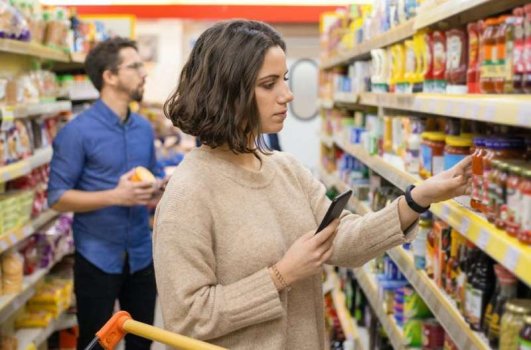Despite attempts to label the blockchain as a disruptive "trust machine", the tangible business applications of this nascent technology have yet to take shape in practice and be more visible for customers.
In the food and grocery industry, however, trust has become an essential element for increasingly demanding consumers after a decade of scandals such as the horsemeat fraud in 2013 and the Pret à Manger mislabeling in 2016. This year, examples of Nestle's Buitoni Pizza and Ferrero's Kinder were found to be contaminated with E. coli.
For food-industry supply chains, the two key trust enhancers are traceability and transparency. Traceability requires cooperation and sharing of information between different actors of the supply chain, ensuring efficiency and reducing risk. Transparency includes disclosure, knowledge sharing, and clarity. It has become one of the key value drivers for food, alongside more traditional factors such as price and taste.
The blockchain functions as a distributed ledger of all transactions that have been executed between users belonging to a network, thus serving as a secure and transparent information storage and transmission technology. It thus has the potential to provide the trust enhancers required by the food industry.
Through the consensus mechanism, the blockchain network also bypasses the need for an intermediary and automates the trust in the whole system, disrupting the way transactions and processes occur compared to the current traditional system.
Continue reading: https://techxplore.com/news/2022-06-blockchain-consumer-food.html
In the food and grocery industry, however, trust has become an essential element for increasingly demanding consumers after a decade of scandals such as the horsemeat fraud in 2013 and the Pret à Manger mislabeling in 2016. This year, examples of Nestle's Buitoni Pizza and Ferrero's Kinder were found to be contaminated with E. coli.
For food-industry supply chains, the two key trust enhancers are traceability and transparency. Traceability requires cooperation and sharing of information between different actors of the supply chain, ensuring efficiency and reducing risk. Transparency includes disclosure, knowledge sharing, and clarity. It has become one of the key value drivers for food, alongside more traditional factors such as price and taste.
The blockchain functions as a distributed ledger of all transactions that have been executed between users belonging to a network, thus serving as a secure and transparent information storage and transmission technology. It thus has the potential to provide the trust enhancers required by the food industry.
Through the consensus mechanism, the blockchain network also bypasses the need for an intermediary and automates the trust in the whole system, disrupting the way transactions and processes occur compared to the current traditional system.
Continue reading: https://techxplore.com/news/2022-06-blockchain-consumer-food.html

